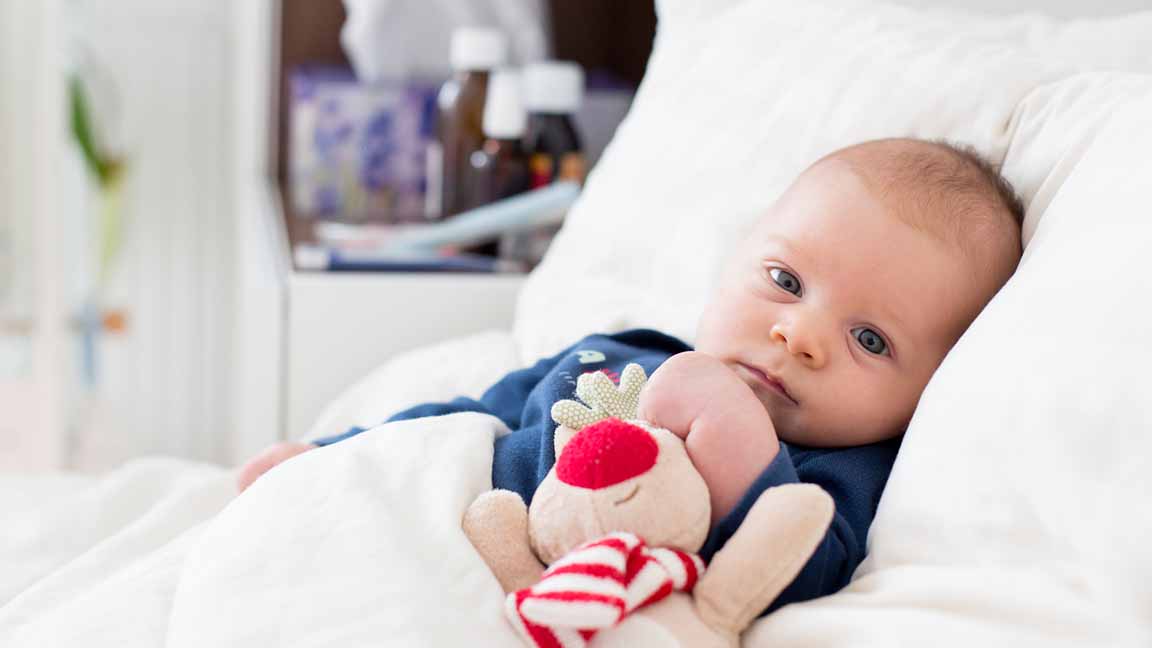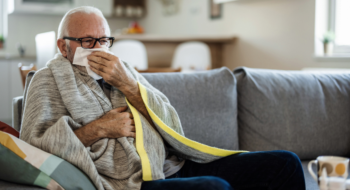From year to year, it’s not unusual for certain strains of cold or flu to steal the show in causing human misery.
One star of this cold and flu season is respiratory syncytial virus, a type of cold that can cause an infection of the lungs and breathing passages. For most people, the symptoms resemble the common cold.
However, the illness can cause serious complications, especially among very young children and older adults. RSV is the most common cause of bronchiolitis (inflammation of the small airways in the lung) and pneumonia (infection of the lungs) in children younger than 1 year old in the U.S. It is also a cause of respiratory illness in older adults.
“Unless an individual develops complications, it’s difficult to differentiate RSV from the standard cold many of us experience this time of year,” says Angela Harris, infection control manager for Tidelands Health. “In most cases, people recover within a week or two.”
RSV is so contagious that almost all kids are infected at least once by the time they’re just 2 years old.
RSV spreads through droplets containing the virus when someone coughs or sneezes, Harris says. It also can live on surfaces such as countertops, doorknobs, hands and clothing, so it can easily spread when a person touches something contaminated.
The virus can spread rapidly through schools and daycare centers, she says. Babies often become infected when older kids carry the virus home from school and pass it to them.
Treatment
Treatment at home usually means allowing ample time for rest and providing plenty of fluids. The last part can be tricky with babies, however, since they may not feel like drinking. In that case, offer fluids in small amounts often.
Adults with RSV might have the symptoms of a common cold, such as a stuffy or runny nose, sore throat, mild headache, cough, fever and a general feeling of being ill. If you’re having symptoms, try to limit contact with children and other loved ones until after you’ve recovered.
Parents of young children, especially premature babies and children with certain chronic conditions that affect the lungs, heart or immune system, should be on alert for RSV complications.
Seek prompt medical care in case of difficulty breathing, a high fever or a blue color to the skin. Some older adults and children who experience complications from RSV may need to be hospitalized.
Stop the spread
It’s also an excellent idea to take precautions to prevent the spread of illness, Harris says. Make sure to disinfect hard surfaces in your home and only allow people to touch your baby after they’ve washed their hands.
Because RSV can be easily spread by touching infected people or surfaces, washing hands well and often is also key in stopping it, Harris says.
Be especially sure to wash your hands after having any contact with someone who has cold symptoms. And school-age kids who have a cold should be kept away from younger siblings — especially babies — until their symptoms pass, she says.
Angela Harris
Infection Control Manager, Tidelands Health





